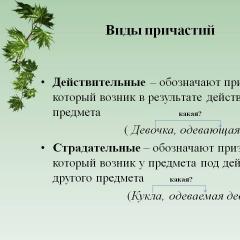What is the form of a word: definition, common mistakes
The form of the word is the most important concept of the Russian language. It is used to judge the grammatical meaning, mutability or immutability of the lexical unit. Errors in the form of a word are not uncommon: someone confuses it with a single-root word, someone does not know how the initial form is formed, and someone does not know how to change it.
Definition of the concept
Almost any part of speech is characterized by change. So, the verb has the forms of tense, number or person; noun, adjective, pronoun change in cases and numbers. All these meanings are included in the word form. The desired form of the word is realized through the ending (inflection). One more concept should be introduced here: a paradigm is a chain of word forms.
For example, when changing the verb decide at times ( I decide - I decide - I will decide) endings change. The same thing happens when you change it by faces: I decide - you decide - you decide; and numbers: I decide - I decide, I decide - I decide, I decide - I decide.
Now let's take as an example the nominal part of speech - a noun day. Let's change it in cases (we take not all, only three): day(nominative), of the day(genitive), in the afternoon(instrumental), about the day(prepositional). Now, by the numbers: day(singular) - days(plural).
The adjective, in addition to changing cases and numbers, can be changed by gender: beautiful table - beautiful furniture - beautiful panel.
Knowing what the form of a word is, we can say that it stands in a certain case, refers to a particular declension or conjugation, person or number. Through this concept, the word is realized grammatically.
For example, in the sentence The boat departed from the steep shore word set sail has the form of the past tense, feminine, singular, therefore, it is a verb. At the end, we can say that the word is feminine. Now let's look at the word shores... It answers the question what?, hence, it is a noun. In addition, you can define case (genitive), number (singular), gender (masculine) and declension (second).
Initial form
Another concept of the Russian language is the initial form of a word. This is the fixed grammatical formatting of the lexeme. So it is recorded in dictionaries. It is noteworthy that these characteristics are different for parts of speech.
Noun - nominative, singular (stump, listener, book, phone, cloud).
Adjective - nominative, singular, masculine (wooden, oak, tea, gorgeous). 
The numeral, if it is quantitative, must be in the nominative case (twenty, six, one hundred forty one), ordinal, similar to the masculine adjective, - in the singular, nominative case (twentieth, sixth, one hundred forty-first).
The initial form of a word-pronoun depends on its rank. It is no secret that these parts of speech are subdivided depending on which part of speech they gravitate towards. Therefore, for pronouns-nouns it will be the form of a noun, similarly - for pronouns-adjectives and numerals. An exception is a pronoun that does not have a nominative case: yourself, yourself, yourself.
The verb is an infinitive, that is, an indefinite form in which questions are posed what to do? what to do ?: (sew, wash, have, sit down, blow up, smile).
As for the participles, their initial form is determined according to the definition. Unfortunately, this is a rather controversial part of speech: some linguists distinguish it as a separate one, and then the initial form is singular, nominative, masculine (dancing). But if you share the point of view of scientists who consider the participle only a form of the verb, then the infinitive must be indicated as the initial form (dance).
The unchangeable parts of speech - the verbal participle and the adverb - stand apart from everyone else in this matter. What is the form of a word? This is his change. Accordingly, these words do not have this characteristic: fast, doubly, hot, drawing, carried away. Here you should make a reservation, as in the previous paragraph: if the gerunds are positioned as a verb form, then its initial form will be an infinitive: drawing - to draw.
Form and root word
It should be understood what the form of a word is, speaking about the same root words. The latter are formed using word-forming morphemes: a prefix or a suffix. Only the ending participates in changing the word form. 
For example, let's use the word human... Changing its shape: man - man - man - man - about man... Words differ only in inflections. The lexical meaning is unchanged. Now let's pick up the same root words: little man, humanization, humanity... These words already have different lexical meanings and differ from each other by the presence of suffixes and prefixes (humanization).
Special cases
In the Russian language there are special cases, called the "lack of freedom" of forms - this is a phenomenon in which it is impossible to create a completely form-generating chain. 
For example, to the word poker difficult to choose the plural form, from the adjective steal it is impossible to form an imperfect passive participle according to the principle draw - drawable... Knowing what the form of a word and its chain is, you will avoid mistakes in this matter.


